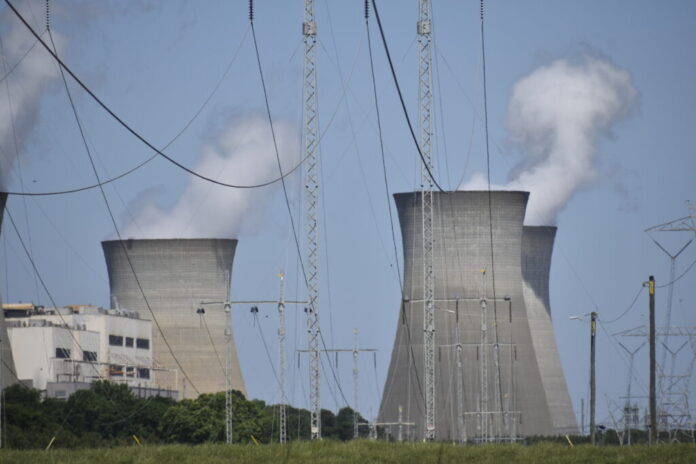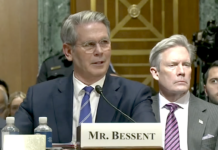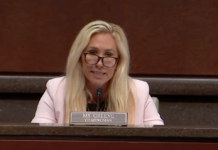
(Georgia Recorder) — A new Georgia Power rate hike set to take effect on Jan. 1 will have the average household spending about $43 more on electricity since the start of 2023 following a series of rate increases.
Georgia Power customers have endured a half-dozen rate increases since 2023 to cover base electric rate increases, recover excess fuel expenses, and cover the cost of completing two nuclear power generators at Plant Vogtle.
In 2025, Georgia Power’s 3.5% rate hike will result in a $5.48 cent increase on the typical household bills. The five-member Public Service Commission unanimously approved the rate increase Tuesday, allowing Georgia Power to recoup from ratepayers $306 million invested by the investor-owned utility into upgrading its power grid and new energy sources. All five elected PSC members are Republicans.
Georgia Power attorneys said that the $306 million is $97 million less than what was originally expected after the company revised forecasts projecting a rapidly growing industrial customer base.
Commissioner Lauren “Bubba” McDonald earlier this month requested that the rate increase be delayed until later in 2025 in order to relieve increasing financial hardship for many customers.
A delay would also provide a better indicator of how the country’s energy policy will be shaped once President-elect Donald Trump takes office, he said.
McDonald also spoke about Georgia Power having large profits that contributed to $1.5 billion in earnings reported during the third quarter of 2024 by Southern Co., the utility’s parent company.
“We need to do everything that we can to hold down rate increases, whether it’s gas, electricity, automobile fuel or whatever, and give America a chance to breathe again,” McDonald said at last week’s committee meeting.
The final days are winding down on an eventful 2024 for Georgia Power, with the company pressing forward with its revised plans to bring on line a large amount of fossil fuel energy sources in order to meet projected capacity demands, which is largely a consequence of an influx of massive data centers to support the artificial intelligence industry.
Georgia Power attorney Brandon Marzo said state regulators were voting on a rate hike that is in compliance with a rate case order from 2022 and revised plans adopted earlier this year by the commission.
“We spend every day working with our team to try to figure out ways to help our customers and include them in these filings,” Marzo said last week. “Even the income qualified discount where we have a projection for a massive expansion of that will help some of our customers who are the most in need.
“Unfortunately, in this case… there are things that the commission determined, per the adopted stipulation, that were necessary investments to serve our customers.”
In late January, Georgia Power will file its 2025 Integrated Resource Plan with the PSC. Georgia Power’s upcoming resource plan details the company’s ambitious energy deployment goals for the next decade, including accelerated plans to add fossil fuel and clean energy sources.
Georgia Power’s long-term plan for 2025 is expected to include details about recovering the extensive bill incurred after Hurricane Helene ravaged the state this fall.
Several clean energy groups are anticipating Georgia Power’s filing next month a 2025 that will offer more insight into the company’s potential request to delay the closure of its legacy coal-fired units.
The company recommended in 2022 to retire two coal-burning generators at Plant Bowen in Bartow County in 2028. In late-2023, Georgia Power’s revised proposal called for pushing back the Bowen closure until 2035, however state regulators ordered the company to wait until 2025 before setting a deadline.
Jennifer Whitfield, senior attorney for the Southern Environmental Law Center, said the expectation is for Georgia Power to abandon timelines for closing the fossil fuel burning units in order to “satisfy the energy-hungry data centers it has recruited to Georgia,”
“The realities of coal have not changed, though: It’s still expensive and dirty,” Whitfield wrote in an email last week.







